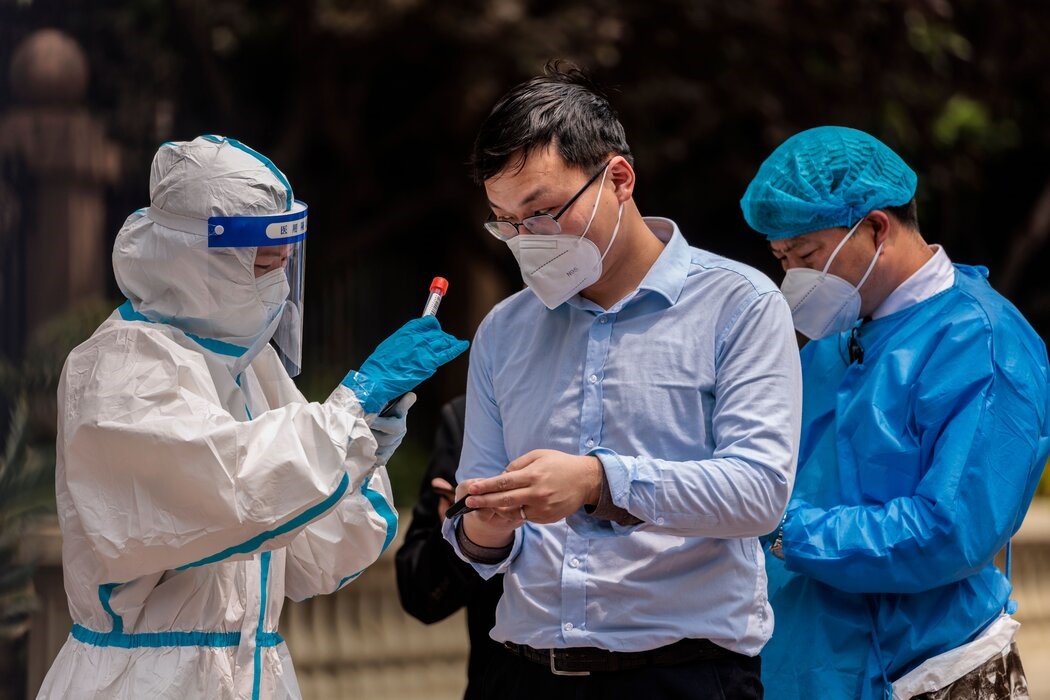Widgetized Section
Go to Admin » Appearance » Widgets » and move Gabfire Widget: Social into that MastheadOverlay zone
The outbreak in Shanghai has prompted many parts of China to implement strict containment measures

A single confirmed case of the coronavirus among the city of 2.4 million inhabitants was enough for the local authorities to seal off Wuhu, a city nestled between farmlands in eastern China, without warning.
Having watched As Shanghai, China’s richest and most advanced metropolis, was easily defeated by the transmission of the Novel Coronavirus variant of the Omicron strain, demoralized and shattered by weeks of containment, officials across the country have good reason to act ahead of time, if not to give people time to prepare.
On Sunday morning, urban residents in Wuhu, Anhui province, woke up to official orders to stay indoors and get tested for the virus, daily until the government decided it had eliminated cases of the Omicron variant. The mutant strain is pushing China’s Novel Coronavirus zero-out policy to its limits.
The Wuhu city government said it had taken decisive measures after a student tested positive for the Novel Coronavirus. Online videos and photos showed many people in Wuhu rushing out to buy food, despite the government’s order to stay indoors, before the lockdown measures were fully implemented.
“Right now I feel like not many people are short of supplies because it’s just the beginning,” Megan Liu, a Wuhu resident who works for a foreign trade company, said in a telephone interview. “But I see a lot of crazy hoarding, a lot of group buying, everybody’s hoarding.”
Shanghai is in the midst of China’s biggest lockdown, with 27 million people trapped in their homes for weeks. While global attention is focused on Shanghai, more than 20 other Chinese cities, large and small, are under lockdown or severely restricted movement, according to Caixin magazine.
Many of these cities have millions of residents, but most foreigners are unfamiliar with their names, such as Lu ‘an, Yongcheng and Siping. Qindong, a town of just 15,000 people in northwest China, has imposed a near-total lockdown on its residents, even though it has not reported a single confirmed case of COVID-19. Because one local person was identified as a close contact of the confirmed case, officials said.
Each lockdown of a town, officials insist, brings China closer to its goal of defeating novel Coronavirus. But each shutdown also places a burden on residents and the economy, exhausted by more than two years of containment measures.
Most Wuhu residents contacted Tuesday said they accepted the government’s restrictions as long as it ensured food and medicine supplies and allowed chronically ill patients to visit hospitals. But others say their communities have been overwhelmed by the demands of their people, especially the elderly and infirm who can’t care for themselves or who don’t know how to order food online. Others complain about sharply rising vegetable and meat prices.
“As for the city government, people are very unhappy that they have not made good arrangements for people’s vegetable baskets,” Zhu Xiaoping, a Wuhu resident, said of the price increases. “You want to blockade; I think the government should make sure that all communities are ready to do a good job of the people’s vegetable basket problem.”
Asked what would happen if people’s needs were not met, Zhu simply replied: “Like Shanghai.”
The lockdown in Shanghai since early April has rung the alarm bell across the country.
Officials want to avoid a repeat of Shanghai’s failure to stem the spread of the Omicron variant, and the central government has forced the city to adopt tougher control measures that are choking off economic life and sparking public anger. Ordinary people want to avoid suffering as residents of Shanghai are experiencing shortages of staples such as rice and eggs, and some residents have died because they could not get timely medical attention.
Senior Chinese officials and Communist Party-controlled newspapers have said in recent days that China will not weaken its efforts to “zero out” the Novel Coronavirus pandemic. Ma Xiaowei, head of China’s National Health Commission, wrote in the Study Times, a communist Party newspaper, that making novel Coronavirus more widely available would pose greater risks.
“China is a country with a large population, unbalanced regional development and insufficient total medical resources,” Ma said. He added that China “should stand out against the current erroneous ideas of ‘virus co-existence'”.
This argument has been questioned by a growing number of Chinese, including medical experts. The lockdown measures in Wuhu and elsewhere have drawn criticism online for being too hasty. The Chinese also scoff at the increasing use of bureaucratic euphemisms by officials to describe lockdown. In Xining, a city of 1.6 million people in northwest China, the government described the lockdown as “static management.”
In response to the government’s explanation of “static management” posted online, one netizen commented: “Logistics stopped, work units stopped and traffic stopped. I really don’t understand the difference between this and lockdown!”
Wuhu residents’ voices are more muted resignation than opposition. That could change if wuhu’s lockdown lasts for weeks or even months, as some Chinese cities have already endured.
“I personally feel it could have been controlled earlier, so it could have been solved quickly,” said Xia Zhenxing, a businessman who lives on the edge of Wuhu. Though he doesn’t live in the city’s lockdown zone, he says his online business selling mung bean cakes, a local specialty, is being affected by the clampdown across China.
“The pandemic is affecting every aspect of business,” he said. “It’s hard, but it can’t be helped.”

